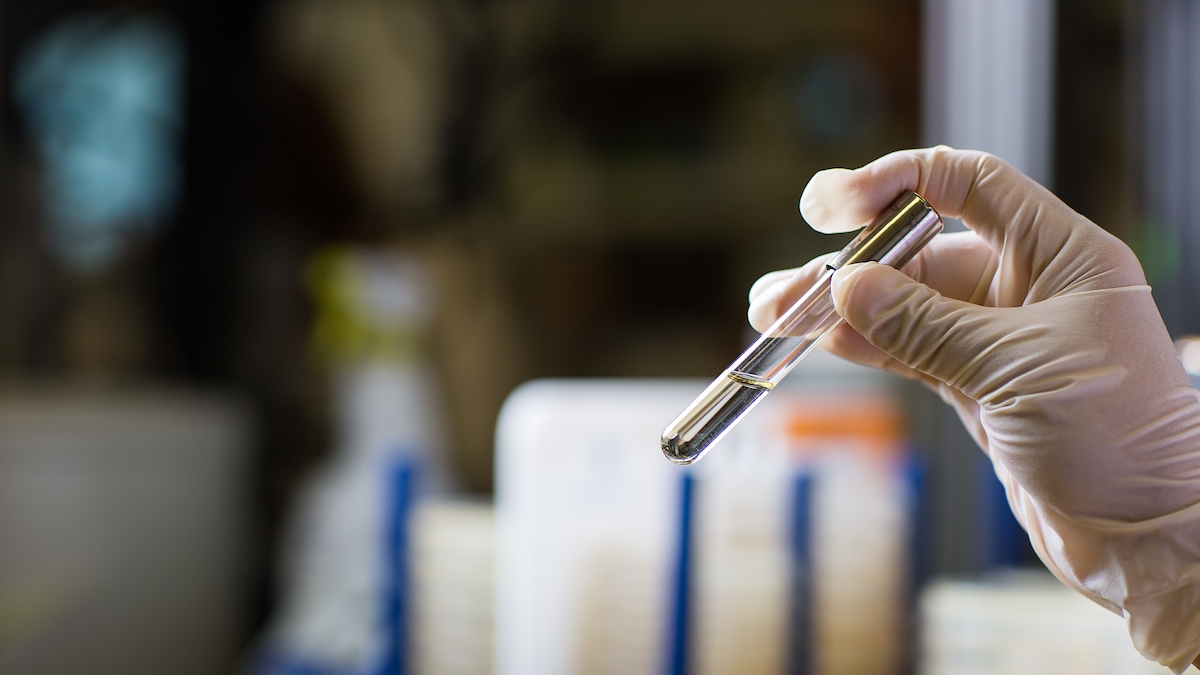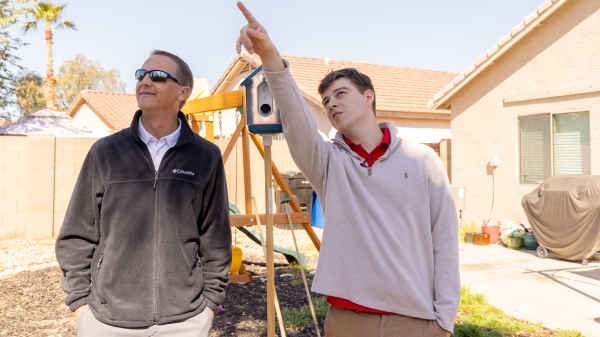What it takes to fast-track a vaccine
In order to contain COVID-19, scientists are speeding up a process that can take a decade

In a matter of months, COVID-19 changed the world. More than 2.1 million cases are now documented worldwide, and as that number keeps rising, scientists are facing the challenge of quickly finding a vaccine — a process that normally takes about a decade. Health experts hope to see results in 12 to 18 months. But is that feasible?
“Vaccines are only fast-tracked when there is an emergency need during a pandemic, like COVID-19,” said Brenda Hogue, a virologist at ASU’s Biodesign Institute who is working on a coronavirus vaccine with ASU researchers Bertram Jacobs and Qiang “Shawn” Chen. “Basic testing is done to show that a vaccine is safe. This can take years, but when fast-tracked it is moved as fast as possible into the populations after initial safety is demonstrated.”
According to the World Health Organization, there are 70 candidate vaccines in development, and five have already made it to human trials — a record, breakneck scientific pace. Hogue tells ASU Now there are generally six stages of a vaccine trial. They are:
• Exploratory stage.
• Pre-clinical stage.
• Clinical development.
• Regulatory review and approval.
• Manufacturing.
• Quality control.
Hogue adds, “In emergency situations like pandemics, vaccines can be approved for use after initial testing to show that it is safe in humans.”
In other words, they are fast-tracked. If they are successful, it can shave almost eight years off the vaccine trial process. For instance, the exploratory stage alone, which typically deals with lab research, can last anywhere between two to four years. The pre-clinical stage (before human trials) can take one to two years. Many vaccines don’t make it out of this stage because they fail to provide the necessary immune response.
Once vaccines are ready for clinical trials, there are at least three phases:
Phase I
• Vaccine tested on small group of adults (20 to 80 subjects).
• Assesses safety and immune response.
Phase II
• Vaccine tested on larger group (several hundred people).
• May include at-risk groups.
• Determines proposed doses and method of delivery.
Phase III
• Vaccine tested on thousands to tens of thousands of people.
• Effectiveness tested/placebo used.
• Helps identify rare side effects.
If all three phases of clinical trials are successful, the vaccine can be submitted for FDA approval and licensing. Since scientists know a lot about other coronaviruses, like SARS and MERS, vaccine developers may have a slight edge dealing with this new global pandemic. Hogue explains vaccine development will include the work already done on other types of coronavirus.
But what if the virus mutates by the time a successful vaccine is ready to be administered? Will the vaccine — and all the work put into it — remain beneficial?
“It depends on what changes occur, how extensive and where the changes are on the virus,” Hogue said. “SARS-CoV-2 appears to be relatively stable at this point.”
Hogue and her team will continue researching COVID-19 and possible vaccine options. They are particularly interested in understanding the proteins that are common to coronaviruses and what is different about the proteins in this new virus compared to the others.
Top photo by Deanna Dent
More Science and technology

AI-equipped feeders allow ASU Online students to study bird behavior remotely
ASU Online students are participating in a research opportunity that's for the birds — literally. Online Bird Buddies is a project that allows students to observe birds remotely, using bird feeders…

National Humanities Center renews partnership with Lincoln Center for responsible AI research
The National Humanities Center has announced that Arizona State University's Lincoln Center for Applied Ethics is one of four organizations to receive funding for the second phase of their…

Advanced packaging the next big thing in semiconductors — and no, we're not talking about boxes
Microchips are hot. The tiny bits of silicon are integral to 21st-century life because they power the smartphones we rely on, the cars we drive and the advanced weaponry that is the backbone of…